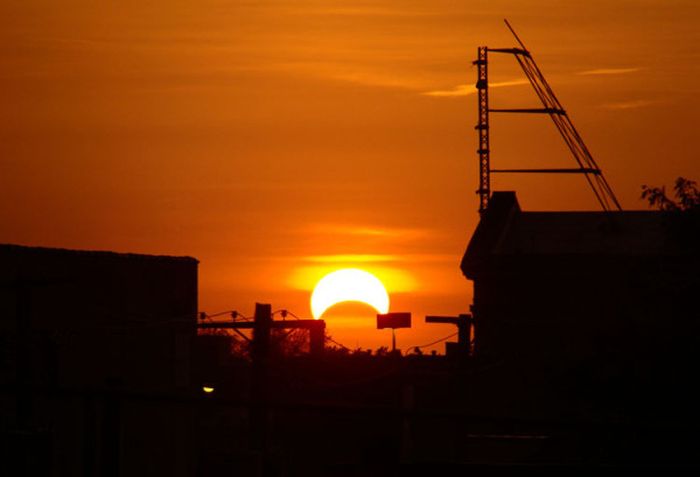|
|
Solar Eclipse
|
The observation of a total solar eclipse of May 29, 1919 helped to confirm Einstein's theory of general relativity. By comparing the apparent distance between stars, with and without the Sun between them, Arthur Eddington stated that the theoretical predictions about gravitational lenses were confirmed. The observation with the Sun between the stars was only possible during totality, since the stars are then visible. Though Eddington's observations were near experimental limits of accuracy at the time, work in the later half of the 20th century confirmed his results.
• Gravity anomalies
There is a long history of observations of gravity-related phenomena during solar eclipses, especially around totality. In 1954 and again in 1959, Maurice Allais reported observations of strange and unexplained movement during solar eclipses. This phenomenon is now called the Allais Effect. Similarly, Saxl and Allen in 1970 observed sudden change in motion of a torsion pendulum, and this phenomenon is called the Saxl effect.
A recent published observation during the 1997 solar eclipse by Wang et al. suggested a possible gravitational shielding effect, which generated debate. Later in 2002, Yang and Wang published detailed data analysis which suggested that the phenomenon still remains unexplained.
|
|









